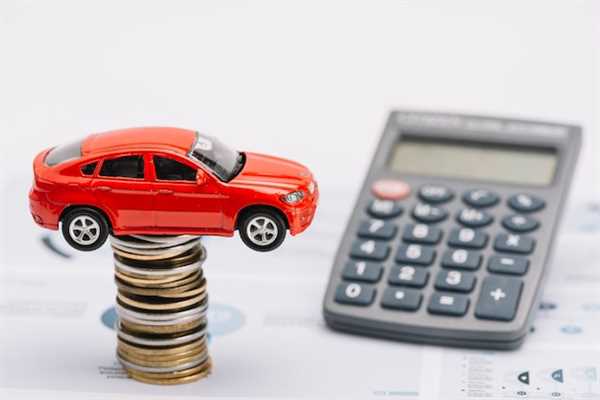
If you aim to buy a used car, the method you choose can significantly impact your experience and the deal you get. While purchasing at a traditional lot may seem straightforward, participating in an auction can unveil hidden gems at potentially lower prices. Understanding how to navigate both options is crucial for making an informed decision.
Consider your goals: if you’re looking for specific models or budget-friendly choices, auctions often offer a diverse range of vehicles that aren’t always available through dealerships. With careful research and preparation, you can master the art of bidding, potentially getting more value for your money.
Regardless of the route taken, thorough inspection of the vehicle’s history and condition is essential. Utilize online resources, check vehicle reports, and be ready to negotiate. The smartest approach involves combining knowledge with strategy, ensuring you secure a car that meets your needs at the best possible price.
Buying from a Dealer vs Auction: What to Choose

The smartest way to acquire a used car is by evaluating both options thoroughly. Dealers offer warranties and financing options, making them appealing for those seeking assurance. On the other hand, an auction can yield lower prices, ideal for budget-conscious buyers willing to take risks.
When attending an auction, set a strict budget and stick to it. Inspect the vehicle beforehand and research its market value. Use online tools to compare prices and validate the auction bids.
If opting for a dealership, check their reputation and read reviews. Request a vehicle history report to ensure there are no hidden issues. Negotiate the price, and review financing terms carefully.
For smart purchasing, weigh the pros and cons of each method. Auctions can be exciting, but the peace of mind at a dealership may save time and reduce stress. Assess your comfort level with risk and the type of vehicle you need to determine the best fit.
Analyzing Costs and Benefits of Dealers vs Auctions
Consider these tips for making a smart choice between purchasing a pre-owned vehicle through a retailer or a public sale. Generally, opting for a retailer means paying a premium that covers a warranty and post-sale services, which may provide peace of mind.
On the other hand, public sales can present significant savings, as vehicles often sell for lower than market value. However, this comes with inherent risks, like limited inspection and no guarantee of reliability.
Here’s a quick overview of the costs and benefits:
| Aspect | Retailer | Public Sale |
|---|---|---|
| Price | Higher, includes warranty | Lower, but riskier |
| Inspection | Comprehensive | Limited |
| Warranty | Often included | Usually no |
| Financing | More options available | Limited options |
| Negotiation | Less flexibility | Greater room to negotiate |
In summary, the smartest way to acquire a used car depends on personal priorities. If uncertainty regarding purchase safety is a concern, leaning towards a retailer proves beneficial. Conversely, for those aiming to save more and willing to accept some risk, exploring public sales may yield a better deal. Evaluate your specific needs and make an informed decision.
Understanding the Purchase Process and Paperwork
To make a smart decision, familiarize yourself with the steps involved in acquiring a vehicle. Each method has its own unique paperwork.
For a successful transaction:
- Verify the vehicle history report. This document details accidents, title issues, and odometer readings.
- Request a pre-purchase inspection. A mechanic can identify potential issues that may not be obvious.
- Ensure financing is sorted ahead of time. This can streamline the process, especially with a pre-approved loan.
Stay informed about regional regulations that may affect your sale, including:
- State emission laws.
- Title transfer requirements.
- Sales tax and registration fees.
Gather all essential documents:
- Bill of sale.
- Title transfer paperwork signed by the seller.
- Proof of insurance to drive legally.
For the actual transaction, consider these tips:
- Negotiate the price upfront. Being clear about your budget may prevent misunderstandings.
- Take time to read through all contracts and agreements. Ensure accuracy in every detail.
- Keep copies of all signed documents for your records.
Confirm the payment method is secure, whether it’s a certified check or an electronic transfer. Avoid cash transactions to maintain clear records.
Being well-prepared with knowledge of the purchase mechanics and necessary paperwork is key to securing a used automobile without pitfalls.
Evaluating Vehicle Condition and History Reports
Inspecting a used vehicle’s condition is the smartest way to avoid costly surprises. Look for signs of wear, such as rust, dents, or unusual tire wear, which might indicate a history of accidents or neglect.
Request a detailed history report to verify the car’s background. This report should encompass previous ownership, accident history, and service records. A vehicle with a clear history is generally more reliable.
Pay attention to mileage discrepancies; odometer rollback can be a sign of fraud. Cross-check with service records to ensure accuracy.
Conduct a thorough physical inspection, including checking fluids and under the hood. A vehicle in good condition will have clean oil and well-maintained components.
For extra safety, consider a certified mechanic’s inspection. Having an expert’s perspective can highlight potential issues that aren’t immediately visible.
Following these tips will help make an informed decision, ensuring you invest wisely in your next used car.
Smartest Way to Buy a Car

Consideration of vehicle history report is critical. This document reveals accidents, service records, and past ownerships. Always request it to assess the used car’s condition and ensure transparency.
Set a clear budget before starting your search. Decide how much you are ready to spend, including insurance, taxes, and registration fees. This way, avoid overspending during negotiations.
Research the market thoroughly. Check online listings for similar models, comparing prices and features to identify fair value. Utilize resources like Kelley Blue Book or Edmunds for reliable pricing information.
Inspect and test drive any vehicle of interest. Evaluate performance, comfort, and any unusual sounds. Bring a mechanic if possible to identify hidden issues that could lead to expensive repairs later.
Negotiate firmly but fairly. Use your research as leverage and be willing to walk away if the terms do not meet your budget. Be assertive about pricing, especially if there are flaws discovered during inspection.
Consider financing options carefully. Shop around for the best interest rates to find a suitable loan. Check if pre-approval is available to strengthen your position when negotiating.
Look for reputable sellers who have positive reviews and feedback. Verify their credentials and seek recommendations from trusted friends or family to avoid scams.
Timing your purchase can lead to better deals. End-of-month or end-of-year sales often provide discounts as dealers seek to meet sales targets.
Be thorough with paperwork when finalizing the purchase. Ensure all necessary documents are completed accurately and keep copies for your records. Double-check the title transfer and ensure there are no outstanding liens on the vehicle.
By implementing these tips, you can simplify the process of acquiring that perfect used car, ensuring a smart investment.



